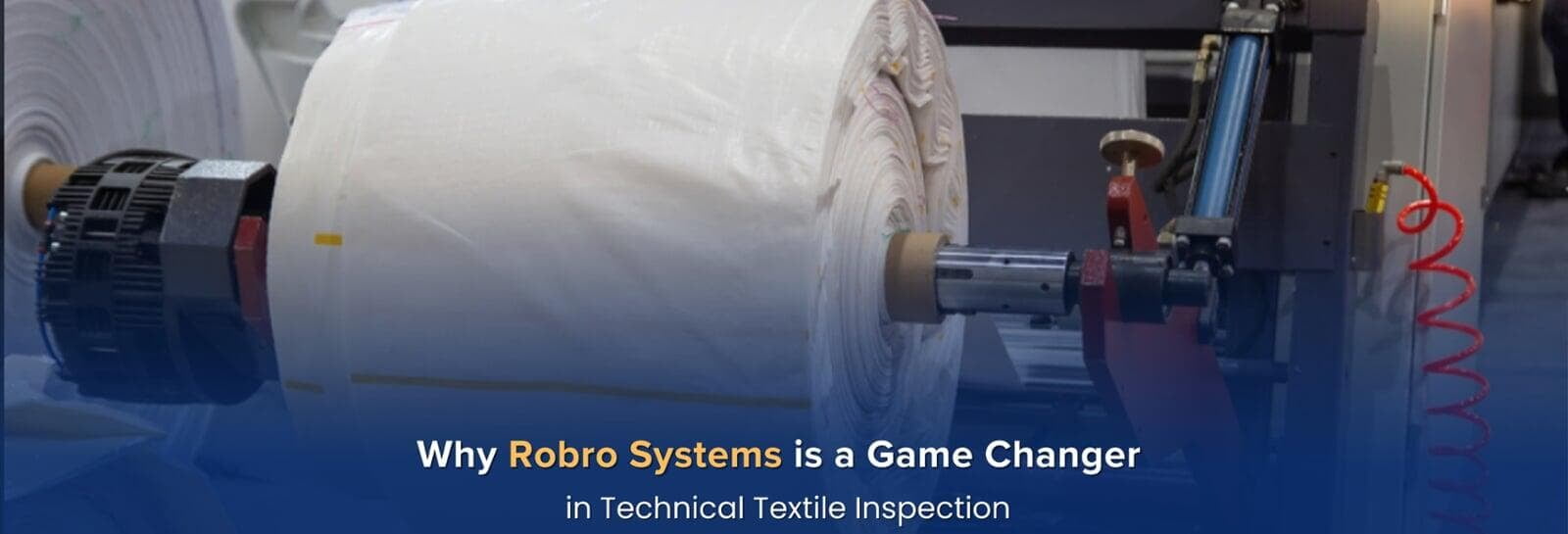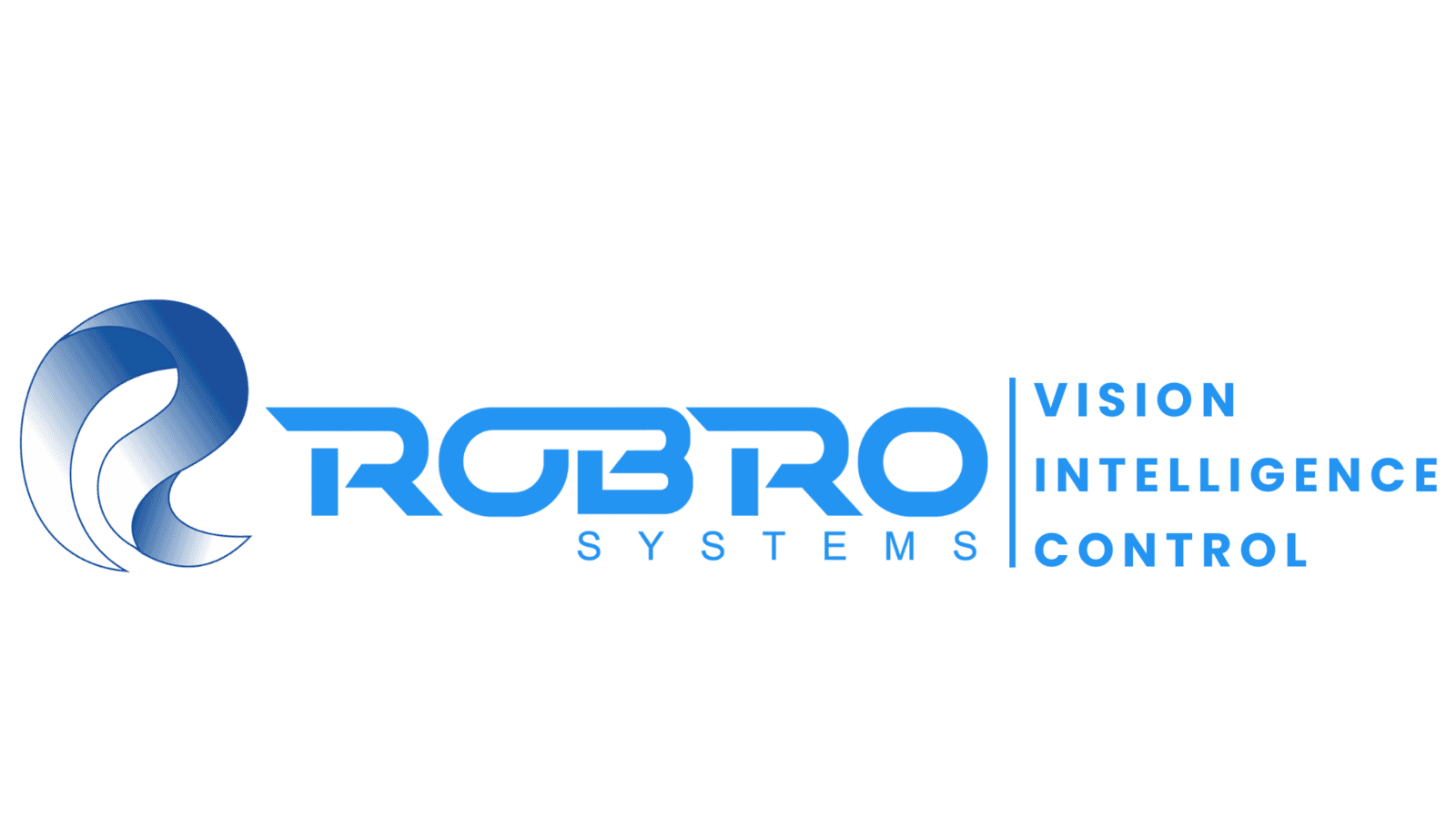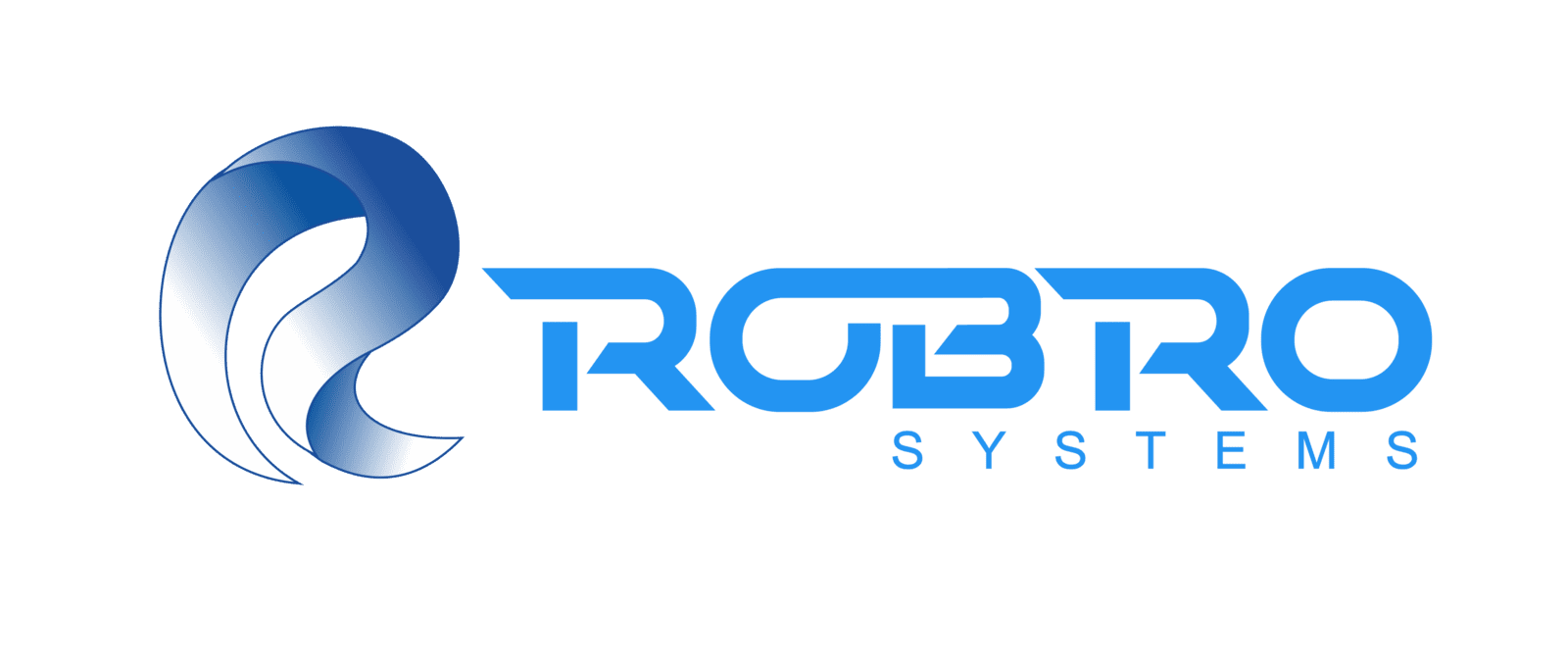
The technical textile industry has evolved rapidly, driven by innovations in materials, manufacturing processes, and the need for high-quality standards across various applications. Maintaining consistent quality has become crucial with the demand for technical textiles increasing in sectors such as automotive, aerospace, healthcare, and industrial applications. Robro Systems, a leader in industrial automation and AI-based inspection solutions. Their advanced technologies, such as the Kiara Web Inspection System (KWIS), have revolutionized the way technical textile inspection is conducted, making the process more accurate, efficient, and cost-effective.
Key Features
- Robro Systems uses advanced AI and machine vision technologies to deliver precise defect detection, ensuring high-quality standards in technical textile manufacturing.
- Their Kiara Web Inspection System (KWIS) provides real-time monitoring and feedback, allowing manufacturers to correct quality deviations instantly and optimize production processes.
- The system is capable of detecting micro-defects that traditional inspection methods might miss, significantly reducing the risk of defective products entering the market.
- KWIS offers seamless integration with existing production lines, enabling manufacturers to upgrade their inspection capabilities without major disruptions.
- The use of AI in predictive maintenance helps manufacturers reduce machine downtime, improving overall production efficiency and reliability.
- Robro Systems' solutions are customizable to inspect various types of technical textiles, making them versatile for different industry needs.
- Real-world applications have shown up to a 40% reduction in rejection rates and a 15% increase in production speed, highlighting the tangible benefits of adopting their technology.
- By automating inspection processes, Robro Systems helps manufacturers reduce labor costs and minimize material waste, leading to faster ROI and long-term cost savings.
The Need for Advanced Inspection in Technical Textiles
Due to their specialized applications, technical textiles often need to meet stringent quality requirements. Defects such as fiber breakage, uneven coatings, stains, or weaving inconsistencies can compromise the integrity of these materials, leading to potential failure in critical applications. Traditionally, manual inspection methods or basic automated systems have been used, but they often need to be improved to detect minute flaws or ensure consistent quality across large production volumes.
According to a report by Technavio, the global technical textiles market is projected to grow by $69.15 billion from 2022 to 2027, driven by increasing demand for high-performance textiles in the construction, automotive, and healthcare sectors. However, maintaining product quality remains a significant challenge in achieving this growth. How Robro Systems Addresses Industry Challenges Robro Systems has emerged as a game changer in technical textile inspection with their innovative solutions like Kiara Vision AI and the KWIS (Kiara Web Inspection System). Here's how Robro Systems stands out:
1) AI-Driven Defect Detection
Traditional inspection systems struggle to detect micro-defects. Robro Systems' AI-based approach enables the identification of even the smallest imperfections in technical textiles, ensuring no defect goes unnoticed. This capability is particularly important in the automotive and medical textiles industries, where even minor flaws can lead to significant quality issues.
2) Real-Time Monitoring and Feedback
The KWIS offers real-time monitoring of production lines, providing immediate feedback to operators. This helps reduce waste, optimize production parameters, and ensure that quality deviations are corrected immediately. Real-time data analytics allows up to 20% faster production cycles than conventional methods.
3) Seamless Integration with Existing Systems
One critical challenge for manufacturers is integrating new technologies with existing infrastructure. Robro Systems' solutions are designed for seamless integration, making it easier for manufacturers to upgrade their inspection capabilities without significant disruptions.
4) Enhanced Customization
Technical textiles often require customization to meet specific application requirements. Robro Systems' inspection systems can be tailored to inspect various fabric types, patterns, and structures, providing precise measurements and quality checks based on unique customer needs.
Real-World Impact: Case Study of a Leading Technical Textile Manufacturer
A leading technical textile manufacturer in India specializing in tire cord fabric and conveyor belt fabric partnered with Robro Systems to enhance its quality inspection processes. Previously, it relied on manual inspection methods that often missed minor defects, leading to costly reworks and customer complaints.
Implementation: The manufacturer adopted the KWIS for their inspection process, enabling automated, real-time defect detection.
Results:
40% Reduction in Rejection Rates: The manufacturer saw a significant reduction in rejection rates due to the early detection of defects.
15% Increase in Production Speed: The KWIS's real-time feedback allowed for immediate adjustments to production parameters, resulting in faster production cycles.
ROI in 12 Months: With reduced waste and improved product quality, the investment in Robro Systems' technology paid off in just eight months.
This example highlights how Robro Systems' advanced inspection systems can drive tangible improvements in efficiency and quality, making them a valuable partner for technical textile manufacturers.
Industry Trends and Metrics in Technical Textile Inspection
Adopting AI and machine vision technologies is transforming industries, and the technical textiles sector is no exception. Here are some key trends and metrics that underscore the importance of advanced inspection solutions:
1) Growing Adoption of AI in Manufacturing
A recent report by McKinsey indicates that 50% of manufacturing companies are exploring AI-based solutions to enhance their processes, including quality control. The textile industry, which requires precise quality standards, is among the early adopters.
2) Machine Vision Market Growth
According to MarketsandMarkets, the global machine vision market is expected to reach $14.43 billion by 2027, with a significant share coming from the textile sector due to the rising need for automated inspection systems.
3) Cost Saving Automation
Studies show that automating inspection processes can reduce labor costs by up to 30% while improving inspection accuracy by over 95%. For technical textile mass, this means better quality and reduced operational costs.
Why Choose Robro Systems?
Robro Systems' ability to combine AI, machine vision, and domain expertise in technical textiles gives them a unique edge. Here's why they stand out from competitors:
1) Precision in High-Speed Production
Unlike many traditional systems, Robro's inspection solutions maintain high accuracy even at high production speeds, ensuring that productivity is not compromised for quality.
2) Scalability
Whether a manufacturer is producing a few specialized textiles or large-scale industrial fabric, Robro Systems offers scalable solutions that grow with the company's needs.
3) Strong Customer Support
Robro Systems is known for its exceptional customer support, ensuring its systems are optimized for each manufacturer's unique processes. This commitment to customer success makes them a preferred partner in the industry.
Robro Systems vs. Traditional Inspection Systems
In a comparative analysis, a manufacturer of conveyor belt fabrics used both traditional manual inspection and Robro Systems' KWIS for six months. The findings were significant:
Manual Inspection: Human error caused 10% of defects to be missed, leading to reworks and increased costs.
KWIS with AI: Detected upto 99.2% of all defects, reducing reworks and saving the manufacturer $120,000 annually on material and labor costs.
This comparison illustrates the use of AI-driven inspection systems like those from Robro Systems, especially for manufacturers aiming to maintain high quality while reducing operational costs.
Conclusion
The need for advanced inspection solutions becomes increasingly critical as the technical textile industry continues to grow and evolve. Robro Systems has become a game changer by providing innovative AI and machine vision solutions that address the industry's unique challenges. From real-time defect detection to seamless integration and customization, Robro Systems offers a comprehensive solution for manufacturers looking to stay competitive in a demanding market.
With proven results in reducing defects, increasing production efficiency, and achieving rapid ROI, Robro Systems is set to redefine quality control standards in technical textiles. Manufacturers looking to enhance their inspection capabilities and keep pace with industry advancements will find a valuable partner in Robro Systems.


